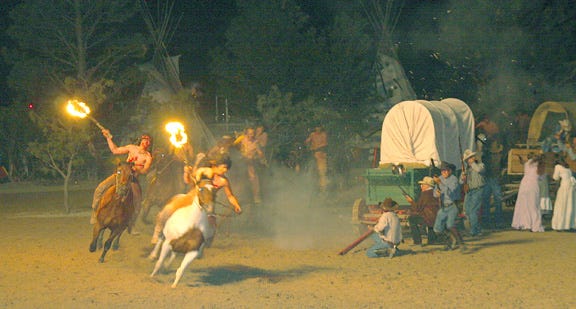Beyond the West and Inevitability
“Beyond ‘The West’: Regionalism, liberalism, and the evasion of politics in the New Western History”
Robert D. Johnston, Rethinking History 2:2 (1998)
In this article, Robert Johnston took issue with what he described as the western exceptionalism of William Cronon, Patricia K. Limerick, Richard White, and Donald Worster; arguing that they had jointly created an artificial West as a “category of analysis,” which he claimed was ahistorical and evaded local variations, contingency, and “the messy realm of the political.” Although Johnston granted that “the mythic-historical Turnerian narrative is so strong that it can only be displaced by a story line of equal power,” he argued that the story had been oversimplified to the point where it hid more than it revealed.
Patricia Limerick, Johnston said, focused so exclusively on property allocation that she channeled Louis Hartz and told a story in which “everyone…is obsessed with getting rich quick.” In doing so, she “fails to take into account the genuine complexity and ambiguity of white Americans’ conceptions of property,” and she missed the point of agrarian radical traditions like populism, where “community consistently triumphed over individualism.” Similarly, in his critique of Worster, Johnston found in the “hydraulic society…an almost completely unrelenting hegemony of bureaucratic corporate capitalism,” which he considered every bit as Hartzian as Limerick.
Johnston’s objection to Cronon was that in his attempt to read Frederick Jackson Turner backwards, Cronon “stresses continuity over change and portrays the dominant society of the American West as inherently liberal and thus bereft of meaningful politics.” Partly this may have been due to the lack in Nature’s Metropolis (1991) of the type of native/white conflict that was present in Changes in the Land (1983). But Johnston was right that Cronon’s purpose in the later book was to apply central place theory “to reveal the unity of city and country that agrarian ideology has obscured.” Cronon was not quite as straight-ahead in that sense as Margaret Walsh, but the resulting ambivalence when he briefly describes agrarian resistance to the elevator operators and other urban powers and then writes it off as ignorant farmers misunderstanding their situation, doesn’t help his case.
There was an interesting moment when Johnston mentioned that Cronon missed the point of the Grange, and observes that “farmers were dependent on urban sources of credit.” This issue of rural entrepreneurs and urban creditors was actually even more contingent than people (including Johnston) seemed to realize. I took that up a bit in my dissertation and book, Peppermint Kings.
Richard White, Johnston said, overstated the “basic ways [in which] the federal government created itself in the West.” This thesis, Johnston argued, “seems more plausible than it really is.” But he admitted White also provided “the most flexible, light-handed, and indeed ‘political’ approach to using ‘The West’,” so Johnston’s objections may have been more about how White’s work is perceived than about what it claimed. Or perhaps Johnston just felt obligated to object to anyone using the idea of “The West,” preferring that “how historians conceptualize space should depend on why they want to think about it.”
In the end, Johnston’s main claim was that especially when we look at the West, historians fall victim to “false necessitarianism.” Following Roberto Unger, Johnston said that if we believe with Limerick, Worster, and Cronon that there is “only one route to and manifestation of capitalism,” then “Modernity…becomes naturalized [and] what Unger terms the ‘transformative resistance’ of ordinary people disappears.” Since “The central value of historical understanding is that it transforms historical givens into historical contingencies,” (quoting Herbert Gutman) Johnston concluded that our histories need to guard against a tendency to ignore or suppress counterarguments or challenges to the way things ended up. Even if they now seem impossible and silly, these challenges to inevitability can tell us about how the future looked to people who didn’t know how the story was going to end. Or how they hoped it could look.


